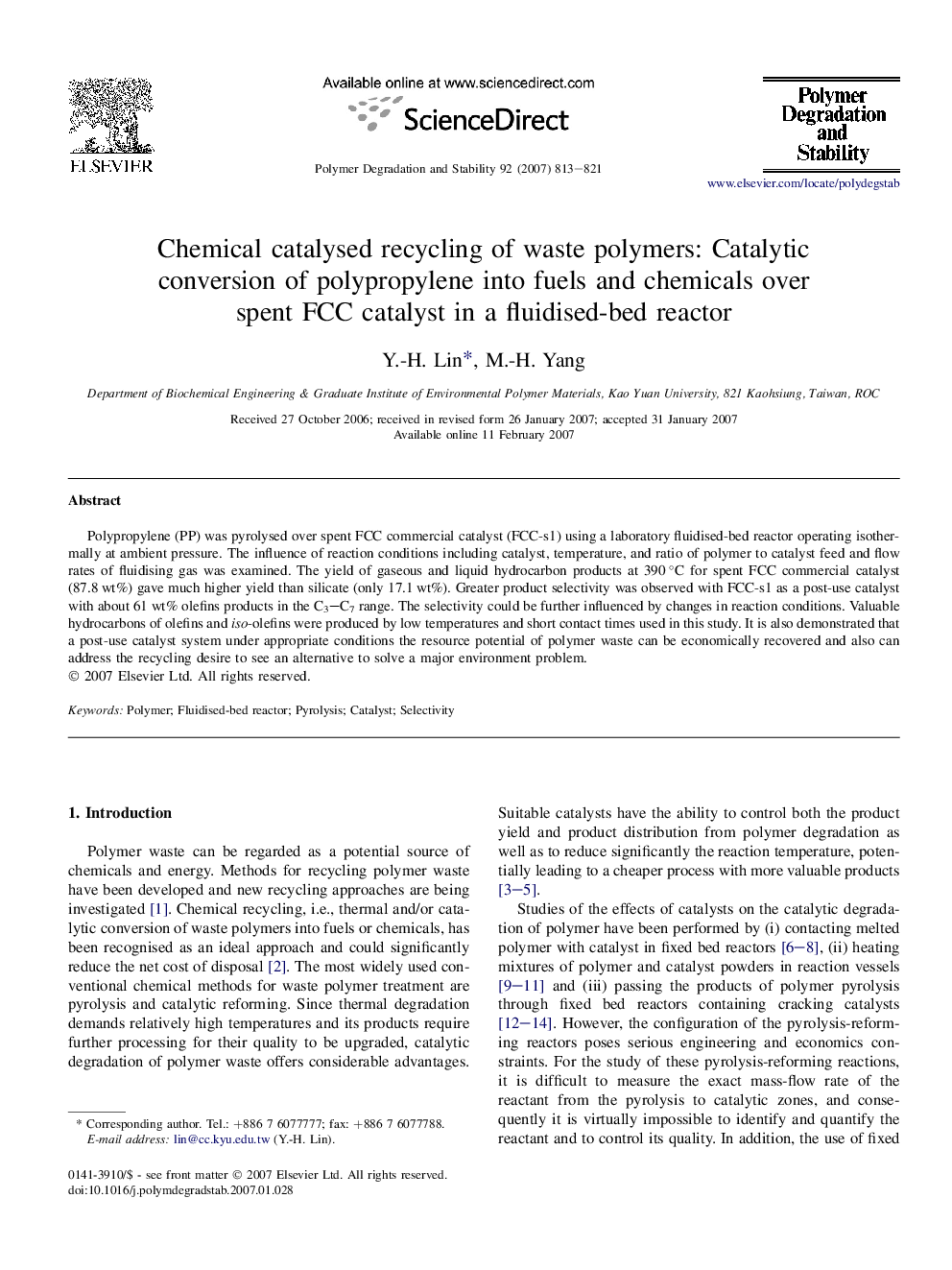| Article ID | Journal | Published Year | Pages | File Type |
|---|---|---|---|---|
| 5204345 | Polymer Degradation and Stability | 2007 | 9 Pages |
Abstract
Polypropylene (PP) was pyrolysed over spent FCC commercial catalyst (FCC-s1) using a laboratory fluidised-bed reactor operating isothermally at ambient pressure. The influence of reaction conditions including catalyst, temperature, and ratio of polymer to catalyst feed and flow rates of fluidising gas was examined. The yield of gaseous and liquid hydrocarbon products at 390 °C for spent FCC commercial catalyst (87.8 wt%) gave much higher yield than silicate (only 17.1 wt%). Greater product selectivity was observed with FCC-s1 as a post-use catalyst with about 61 wt% olefins products in the C3-C7 range. The selectivity could be further influenced by changes in reaction conditions. Valuable hydrocarbons of olefins and iso-olefins were produced by low temperatures and short contact times used in this study. It is also demonstrated that a post-use catalyst system under appropriate conditions the resource potential of polymer waste can be economically recovered and also can address the recycling desire to see an alternative to solve a major environment problem.
Related Topics
Physical Sciences and Engineering
Chemistry
Organic Chemistry
Authors
Y.-H. Lin, M.-H. Yang,
